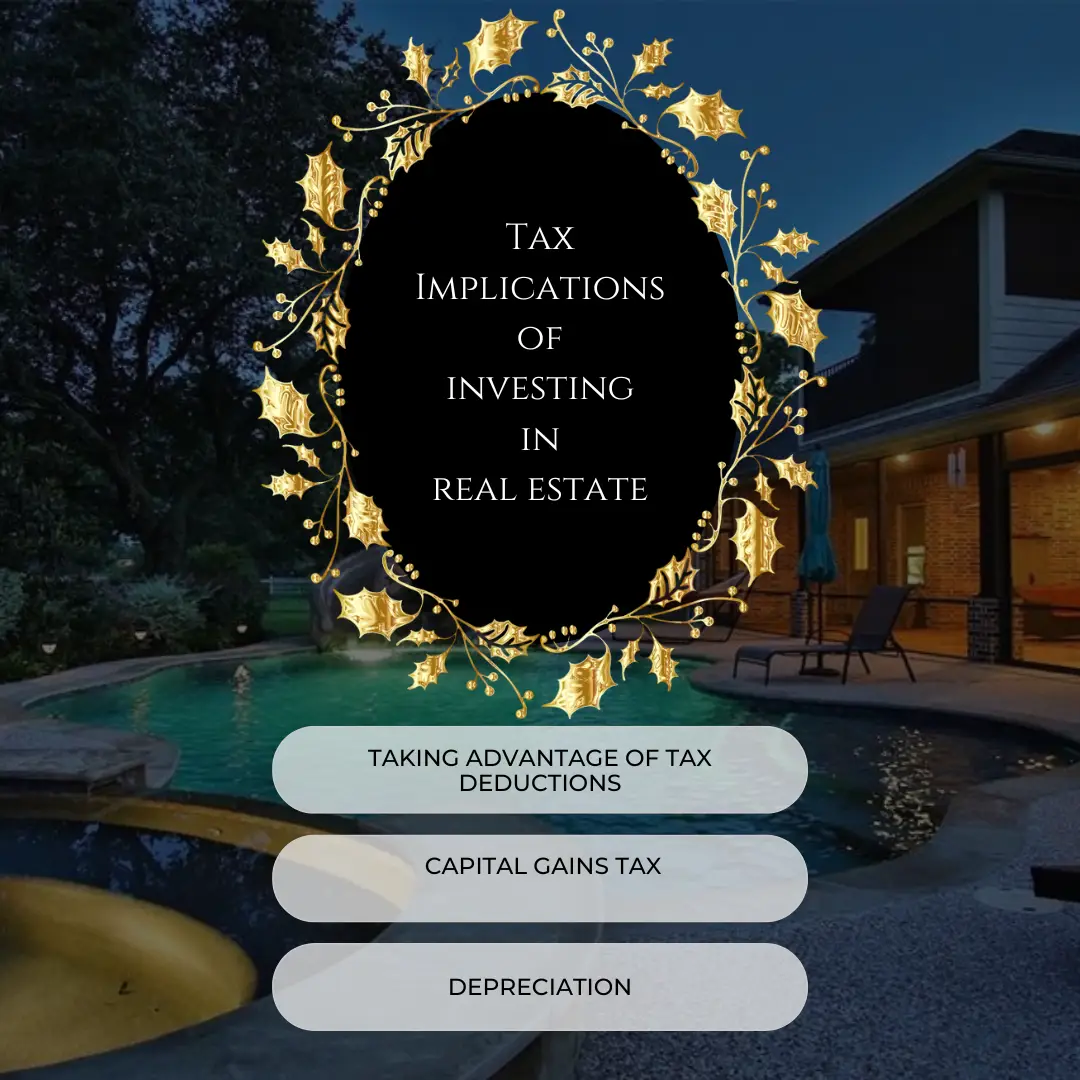Tax Implications of Investing in Real Estate

Investors should start by understanding the potential tax implications that come along with investing in real estate. These tax implications can significantly impact the overall profitability and management of the investment. By being aware of these factors and consulting with a tax professional. Investors can navigate through the complex world of real estate taxes and make informed decisions that maximize their returns. Additionally, here are the key tax considerations.
Income Tax on Rental Income
Rental income from real estate investments is taxed as ordinary income. This means that the income you generate from renting out a property is added to your other sources of income. Then taxed according to your total income tax bracket compmort.com.
Capital Gains Tax
When you sell a real estate investment for more than you paid for it, you may be subject to capital gains tax on the profit. The rate at which you are taxed depends on whether the asset was held for more or less than a year. Short-term capital gains (for assets held for less than a year) are taxed at your ordinary income tax rate, while long-term capital gains (for assets held for more than a year) are taxed at lower rates, typically 0%, 15%, or 20% bankrate.com.
Exclusion for Primary Residence
If you are single and the property sold was your primary residence. Not only..but also, you lived in it for at least two of the five years prior to the sale. Nonetheless, you can exclude up to $250,000 of the gain from capital gains tax. Subsequently, if you are married filing jointly, you can exclude up to $500,000. Investopedia.com.
Depreciation
The deduction of depreciation recognizes the costs associated with the wear and tear on the property over time. Which can be claimed by real estate investors. Typically, for residential properties, this calculation spans over a 27.5-year period, and for commercial properties, it spans over a 39-year period. This deduction has the potential to significantly reduce taxable income. QuickenLoans.com.
1031 Exchange

Investors can defer paying capital gains taxes on an investment property when they sell it through a 1031 exchange, as long as they purchase another “like-kind” property with the profit gained from the sale. This tool allows investors to indefinitely defer taxes by continuously rolling over gains from one investment to the next. nerdwallet.com.
Other Deductions

Investors can also deduct other operating expenses associated with managing a rental property. These include mortgage interest, property taxes, insurance, maintenance costs, property management fees, and utilities smartasset.com. Additionally, improvements to the property can also provide tax benefits. Although the rules differ from those for basic maintenance and repairs nerdwallet.com.
Tax Benefits Specific to Real Estate Professionals
You may be able to deduct all your rental property losses against other income without the limitations usually applied to passive activities if you qualify as a real estate professional under IRS rules (spending more than 50% of your working hours and more than 750 hours per year in real property businesses). Investopedia.com.
Local and State Taxes
There may be additional state and local taxes depending on the location of your property. For example, some states charge a transfer tax when real estate is sold, and property taxes can vary significantly. texasRealEstateSource.com.
Net Investment Income Tax
The Net Investment Income Tax (NIIT) may subject some investors to an additional 3.8% tax on the lesser of their net investment income or the amount by which their modified adjusted gross income exceeds the statutory threshold amount based on their filing status. QuickenLoans.com.
Tax Implications of Investing in Real Estate | Conclusion
In summary, real estate investing offers several tax benefits. Such as, deductions for depreciation, mortgage interest, and other operating expenses. Additionally, which can reduce the taxable income generated from the property. However, investors also face potential liabilities like capital gains tax and income tax on rental earnings. Strategies like the 1031 exchange can defer some taxes. But understanding all the implications and planning accordingly with the help of a tax professional is crucial for maximizing the benefits. As well as, minimizing the liabilities associated with real estate investments RocketMortgage.com.

Contact Information
To schedule a coffee date or learn more about tax implications of investing in real estate, contact Terra Point Realty at 713-766-1697. Their friendly and knowledgeable team is ready to assist you with understanding tax implications of investing in real estate. Don’t miss out on the opportunity to live in your dream house – schedule a coffee date today and start your journey towards understanding tax implications of investing in real estate.
